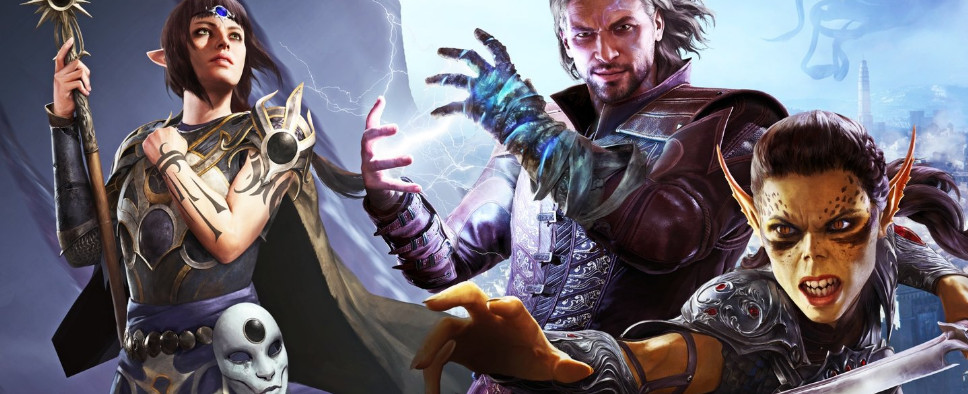Baldur's Gate III Preview - Page 2
-
Category: PreviewsHits: 13809

Article Index
Skills include things like history, persuasion, religion, and sleight of hand. All characters have access to all skills, but they don't receive skill points or anything like that. Instead, their ability scores give them a base value in each skill, and then they choose a handful of skills (based on their class and "background") to become proficient in. The proficiency bonus starts out as +2, but then grows as characters gain levels.
As an example, the sleight of hand skill (which is used when disarming traps and picking locks) is based on dexterity. With a dexterity score of 16, you start out with +3 in the skill. If you're also proficient in it (say, if you're playing a rogue), then you add your proficiency bonus to the score for a total of +5. All skill checks use a d20 die, so +5 means you have a 25% better chance to succeed over somebody who is at +0.
I didn't much like the skill check system, and the example in the previous paragraph is the reason why. If focusing on a skill only gives you a 25% better chance over someone who is totally inept in it, then something is wrong. Worse, it means that any character can succeed in any skill check, if you don't mind save scumming. This is an area, I think, where Larian following the 5E rules exactly is a mistake. They should adapt the rules to work in the medium they're using. You can't repeatedly reload your game in a tabletop setting, but the temptation is great when playing on a computer / console, especially when your d20 roll fails to beat a 5.
To offset d20 roll frustration -- at least a little bit -- Larian uses "inspiration points." These points can be gained in a few places in the campaign, and you can use each point for a second roll during skill checks. So if you fail to beat a 5 on your first roll, you can spend an inspiration point and try again. Of course, inspiration points are rare, so you can't use them all the time. You have to pick your spots -- which for me means I never use them because I'm always worried I should save them for someplace "really important."
In my latest game, I played as a druid. I gave him the "urchin" background, which made him proficient in sleight of hand. Since he also had 14 dexterity, that gave him +4 to the skill, making him about as good as any rogue in rogue-like activities. For me, that just felt wrong. Druids and rogues shouldn't have much in common. I preferred the 2E skill system in Baldur's Gate II where classes were restricted in what skills they could use, if they could use any skills at all. But then, admittedly, I'm old, and you whippersnappers should get off my lawn.
Campaign
You begin the game on board a flying mind flayer vessel called a nautiloid. You've been kidnapped by the mind flayers, and they've infected you with a parasite that will eventually turn you into a mind flayer yourself. Apparently, that's how mind flayers procreate. Who knew? But luckily, the vessel is attacked by a githyanki war party, and it crashes into the countryside outside of Baldur's Gate.
While you're exploring this region, you meet other survivors of the wreck -- all infected like you -- and five of these characters become available as companions. Unlike most RPGs, it makes sense for the companion characters to join you, because you all have a common goal -- to find somebody who can remove the ticking time bomb of a parasite from your head. And conveniently, the companion characters cover the basic classes -- cleric, fighter, rogue, warlock and wizard -- so it's easy to form a party of up to four characters, regardless of which class you choose for your main character.
The crash site region has a lot of variety to it. There's a druid grove where tiefling refugees are hiding out from goblins. There's a burning inn where people need to be rescued. There's a bog where a wicked witch has set up shop. There's an entrance to the Underdark, where you can pal around with a community of myconids. And more. In fact, there's so much stuff in the region that's it's a little difficult to believe, even in the context of a fictional computer game setting. It doesn't feel like a living, breathing place. It feels more like a greatest hits album.

